How To Join the 4B Movement and Never Become a Grandparent
The 4B Movement's parallels to the Chinese Cultural Revolution's 4 Olds, spicy free therapy advice for NYT's "Unspoken Grief of Never Becoming a Grandparent", and a podcast appearance on The Carousel
Comrades: The 4B movement has subverted South Korea and is now invading America. B stands for ‘bi’, which means ‘no’ in Korean. The 4 cult rules are:
No sex with men (비섹스; bisekseu)
No giving birth (비출산; bichulsan)
No dating men (비연애; biyeonae)
No marriage with men (비혼; bihon)
Since the movement emerged a decade ago, South Korea’s fertility rate has plummeted into the lowest in world history: 0.7. In contrast, poverty-stricken dictatorship North Korea has a TFR of 1.9, which is at par with America. Angry American leftist women have joined the 4B movement cult in their rage following Trumps victory. Many are going viral on Tiktok for shaving their heads in stunning and brave defiance. The only way they changed the world was for the worse.
At this rate, North Korea will take South Korea without a fight and switch the lights:
Like The 4 Olds of the Chinese Cultural Revolution, 4B is antihuman Communist demoralization. Mao instigated The Red Guard to smash anything that represented tradition. In their struggle sessions, they destroyed a rich culture and history that their ancestors built:
Old ideas
Old culture
Old customs
Old habits
Families are the foundation of healthy societies. Anti-human Communists always go after the kids because they know that rootless, unhappy dependents will keep them in power. Never in human history have so many voluntarily decided to end their genetic lines, especially in economically prosperous societies. This is a spiritual war. You have the freedom to join 4B. Make yourself as lonely, ugly, and miserable as possible. Stop having babies. Save the planet by ending your carbon emissions. You can call it any word salad term like liberation, empowerment, justice, stunning, brave, or equity, but it is the opposite of joy. In the meantime, normal happy people who build families shall inherit the earth. The future belongs to those who show up.
The New York Times profiled sad boomers who will never experience the joy of being grandparent, so I will offer them free advice on where it all went wrong with subversion:
The Unspoken Grief of Never Becoming a Grandparent
A growing number of Americans are choosing not to have children. Their parents are grappling with what that means for them.
Lydia Birk, 56, has held on to her favorite copy of “The Velveteen Rabbit” since her three children — now in their 20s and 30s — were young. She loved being a stay-at-home mother, and filled her family’s home with books. (All of her children could read before they started school, Ms. Birk recalled with pride.) She hoped one day to be a “cool” grandma who would share her favorite stories with a new generation.
But none of her children want to have kids. And though that decision is “right for them,” Ms. Birk said, it still breaks her heart. “I don’t have young children anymore, and now I’m not going to have grandchildren,” she said. “So that part of my life is just over.” Like Ms. Birk, a growing number of Gen Xers and baby boomers are facing the sometimes painful fact that they are never going to become grandparents. A little more than half of adults 50 and older had at least one grandchild in 2021, down from nearly 60 percent in 2014. Amid falling birthrates, more U.S. adults say they’re unlikely to ever have children for a variety of reasons, chief among them: They just don’t want to. “That is a best and worst thing about having kids,” said Ms. Birk’s husband, John Birk Jr., 55. “You watch them make their own decisions, different from your own.”
John and Lydia - my condolences for your loss. Instead of trying to be a “cool mom” or “cool grandma”, perhaps you should have instilled the values of creating and nurturing life into your children so that they would want to give you grandchildren. Kids can make their own decisions, but those decisions are influenced by your parenting and MSM/academic brainwashing. Western culture has deteriorated because this sacred bond of family and filial piety was severed.
Still, would-be grandparents like the Birks may experience a deep sense of longing and loss when their children opt out of parenthood, even if they understand at an intellectual level that their children do not “owe” them a family legacy, said Claire Bidwell Smith, a therapist based in Los Angeles and the author of “Conscious Grieving.” It doesn’t help that our society tends to paint grandchildren as a reward for aging. “You always hear people talk about how great it is to be a grandparent, how it’s better than being a parent,” Ms. Bidwell Smith said. “I think when people don’t get to experience that, there’s a very real grief that comes with it.” It’s a kind of grief, she said, that our culture tends not to recognize, and that people don’t know how to talk about.
Therapists like Claire are subversion agents. They are paid enormous sums to make their patients rationalize away normal human desires and absolve them of responsibilities. Birth rates were far higher and depression much lower when therapists were a rare profession. The Birks’ kids all have the look of demoralization: vacant snobby hipster stares, obesity, deep soy. Lord knows how many seed oils, Big Pharma products, and MSM they consoom. Can you hear their nasally millennial snot voices? Where do they find these people? Are they friends of the NYT reporters who live in Brooklyn?
Feeling left out, without a legacy.
Christine Kutt, 69, had her only child at 42, after years of thinking she did not want to become a parent. The experience transformed her, she said, and she has loved being a mother. But her daughter is adamant she does not want children, pointing to her pessimism about the state of the world and climate change. Ms. Kutt, who is divorced and lives in the suburbs of Chicago, vacillates between feeling supportive of her daughter’s choice and quietly hoping she might change her mind.
She dreams of being surrounded by grandchildren as she ages, passing on to them her family recipes and love of rock ‘n’ roll. Even when her daughter was little, she envisioned such a future. “I was like, ‘Oh my god, it’s so much fun to teach her all this stuff! And someday she’ll have children, and I’ll be able to teach them,’” she said.
Another hug for Christine. Her daughter’s pessimism is a mind virus. It is so deeply embedded that neither of them know how it got there or how to heal it. Not having kids because of climate change is pure insanity. If you grew up in a deep blue metro area with divorced parents, you are a goldfish swimming in a toxic cesspool. Most never make it out, those that do have serious scars. At least goldfish still have the natural urge to mate and reproduce. The final step of demoralization is normalization.
Parents who are hoping for grandchildren are likely at an age when they’re experiencing a “shrinkage of time,” with fewer years ahead of them than behind them, said Maggie Mulqueen, a psychologist based in Wellesley, Mass. That can mean wrestling with existential questions about their lives and legacies, she said. Dr. Mulqueen, who has counseled many baby boomers through their longing for grandchildren, has found that the decision to remain child-free can strain the parent-child relationship, particularly when a parent who has dreamed of grandchildren fails to separate any personal disappointment they feel from a sense of being disappointed in their children.
Ms. Kutt, wary of making that mistake, does not talk about the topic with her daughter often. “It’s been made perfectly clear to me that this subject is not to be discussed,” she said, though sometimes she cannot help herself. Ms. Kutt tells her daughter that the woman she is 10 years from now will not recognize the person she is today, and nudges her to keep her options open. The situation can feel like a personal rejection for older parents, Dr. Mulqueen said. Some of her clients ask themselves: “Did I mess up as a parent so much that my kids don’t want to have children?” she said. And when one’s peer group is deep in the trenches of grandparenthood — shuttling kids to soccer practices and ballet recitals, or spending disposable income on plane tickets for family visits, it can also make those without grandchildren feel left out in the cold, Dr. Mulqueen noted. “It’s like when your friends are getting married, or when your friends are having children, and you’re not,” she said.
Here’s a crazy idea. Instead of talking to their own therapists, why don’t parents and kids have difficult conversations with each other? Mulqueen and Smith are making bank from anxiety-ridden emotionally incontinent AWFLs in LA and Boston. My parents never shied away from pro-family conversations. They have joined new group chats for grandparents only because in their mixed group chats, friends who lacked grandchildren were complaining about seeing too many pictures of other people’s grandchildren. Immigrant communities who treasure large families are facing the same plague because many of their children assimilated into American woke culture. I could have predicted in high school which kids would end up having their own kids and which would turn into childless PMC NPC boba Asians.
Grieving a child’s choice.
Like every parent interviewed for this article, Jill Perry, 69, said her two daughters — both in their 30s and child-free — should be able to make their own choices about parenthood, and they have her full support. But now would also be the “perfect” time for her to become a grandmother, she said. She was laid off from her job running a college student health center two years ago, after decades of working as an emergency room nurse.
When friends post happy photos with their grandchildren to social media, Ms. Perry often feels the tug of what might have been. Her house would be the “fun house,” she said, where little ones could paint, have adventures and make a mess. “I think that’s the part I’m really struggling with,” she said. “Like, OK, I won’t be able to do that with grandchildren. So what can I do to fill that need?” Ms. Perry stays busy with her husband, dogs, book club and playing mahjong. But she also feels a bit alone as time goes by. “Grandchildren bring such hope and light into your life,” she said. “To have that is a counterbalance, I think, to aging. Because aging is hard.”
Ms. Perry’s younger daughter, Emily Cox, 35, said her mother had, “at different points in our lives, made it very clear how much she would like to be a grandmother.” While her older sister has always said she did not want children, Ms. Cox has felt more ambivalent — leaning toward not having kids because of concerns over financial stability, school safety, health care access and not having found a trusted partner. “Part of my grief process has also been like, oh, is this something that I’m not able to give to my parents?” she said. “And what responsibility do I have for that?”
Nature abhors a vacuum. Before atomized modernity, grandparents were always there to help raise grandkids in multigenerational households. Now many will leave this world knowing their family tree has ended. The framing of the daughter’s quote here is still off. She should want children for herself, not for her parents. Her concerns are just excuses - all of her ancestors had far more children with far fewer resources. That is the power of the mind virus. The job and finances will never love you back or visit you at the nursing home in your final years.
Ms. Bidwell Smith said that it was important for parents like Ms. Perry to give themselves permission to acknowledge and sit with their grief. For some, that is difficult — they may tell themselves they should simply get over it, because there are far more serious types of loss in the world. To the extent it is possible, experts encourage non-grandparents to explore different sides of themselves. Those who miss spending time around younger children can find ways to get involved, Dr. Mulqueen said. One of her clients who had a background in accounting volunteered to tutor math at a local school. Ms. Bidwell Smith said it could also help to ask: If the next chapter of your life does not include grandchildren, what new activities or adventures might be possible?
Ms. Perry’s husband, Dr. David Cox, 67, does what he can to avoid romanticizing the grandparent experience, clocking when friends grumble about having become an “overworked babysitter.” Still, he feels pangs of sadness, particularly when he and Ms. Perry pass a park full of happy kids. Or when he reminisces about his grandfather, who immigrated from Sicily and was, in some ways, more of a father figure to Dr. Cox than his own dad was. “I think we both would have loved to pay that gift of unconditional love and guidance back in spades if we were grandparents,” he said, speaking of himself and his wife. “But, not to be.”
4B, or not 4B. That is the civilizational question.
As you’d expect for NYT, the top comments are even worse than the article itself. I am not even going to bother responding to them. Here are the top 3 if you have the stomach:
Comrade
and I bantered about this topic and many more for ~100 minutes on The Carousel:



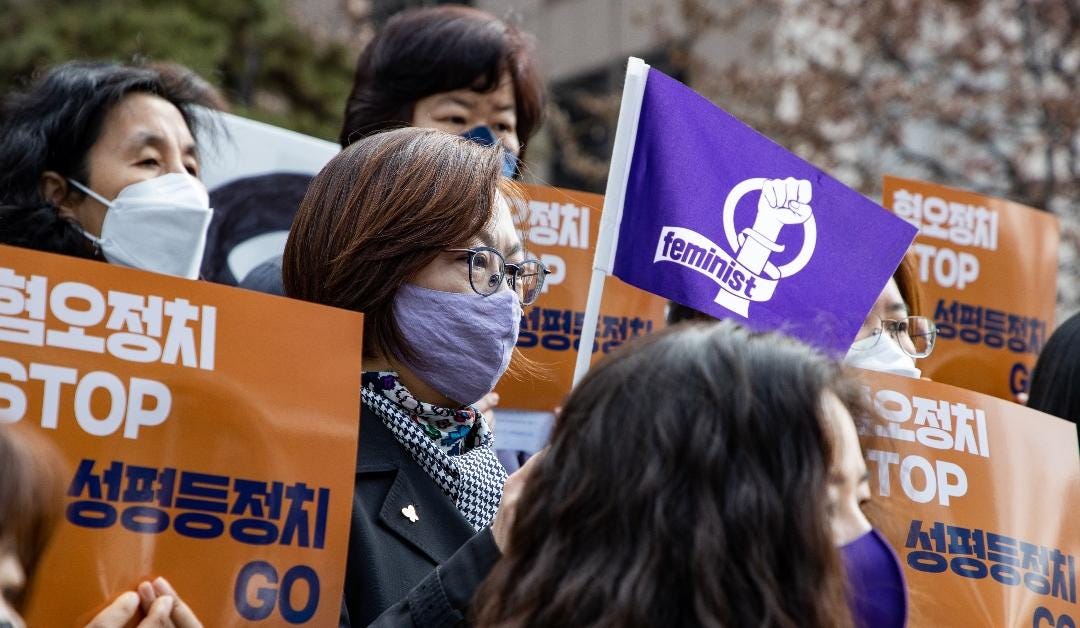
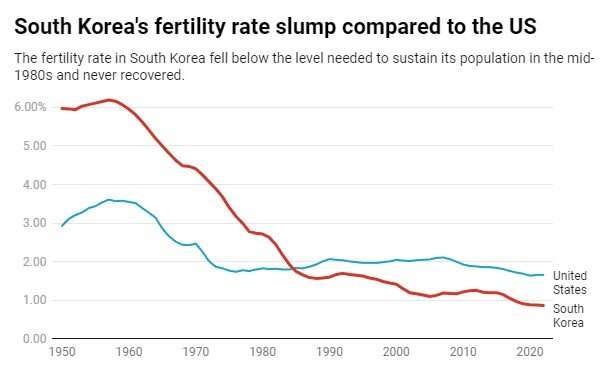




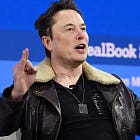

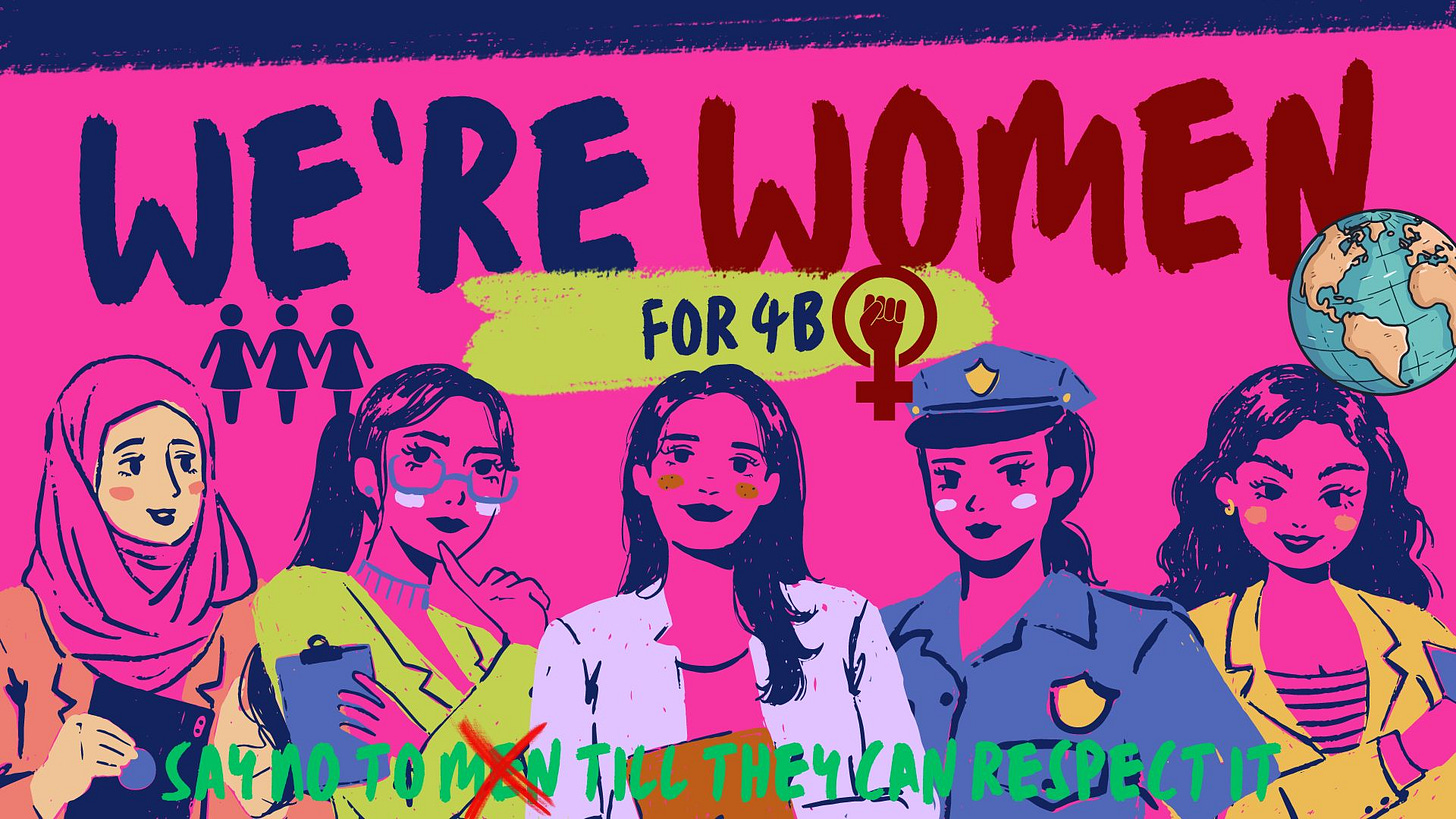
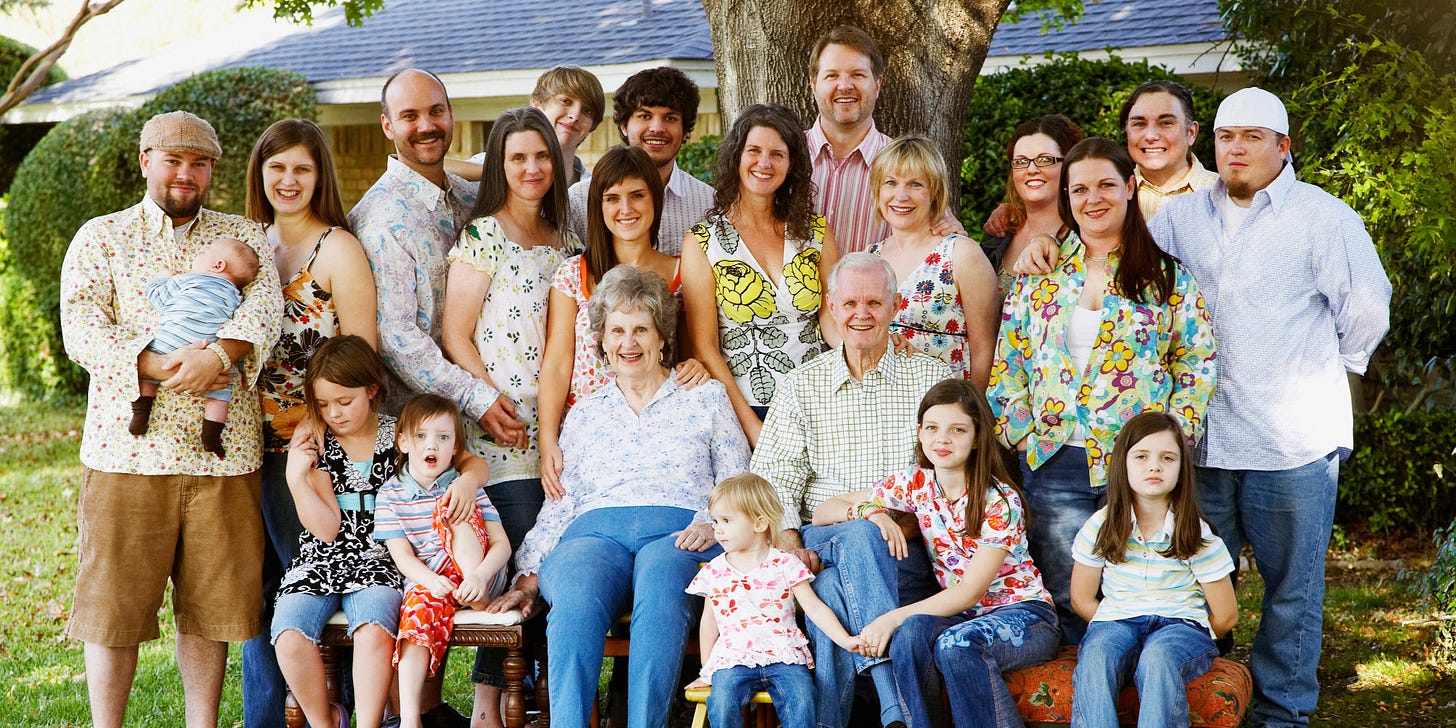



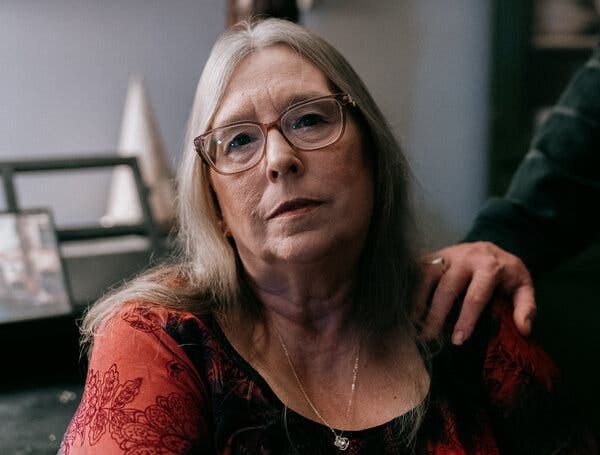



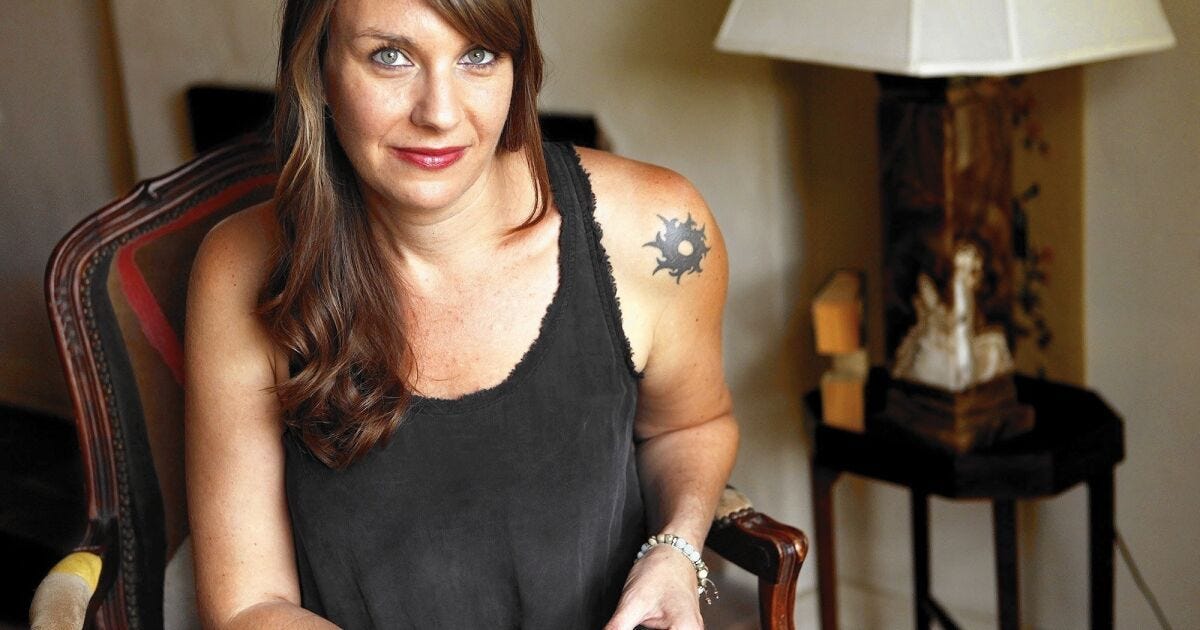





Generally speaking, the group that culls themselves from the gene pool, may be doing humanity a favor. Rage on wenches!
One thing that struck me in the above piece was the comment: "...get an education in education" so you can teach and/or be around kids. Unless you're getting a degree from someplace like Hillsdale, you will likely just be educated in the prevailing, subversive anti-family ideology. My wife and I are childless by choice. She's a child of an acrimonious divorce, and my parents never said a word one way or the other about children. I never felt like I needed children to be fulfilled, and frankly never felt mature enough to take on the task. My regret now, at 70, is precisely that I could have raised a conservative culture warrior if I had known then what I know now. What I do know now is that we need a much more explicit pro-family policy by our government and in our public discourse. Inculcate that children are a virtue, and have economic policies in place that encourage it.